
Future of the Brain Summit
Speakers and Presenters

Tuesday, October 28, 2025, 6:30-9:00 p.m.
Wednesday, October 29, 2025, 9:00 a.m.-5:00 p.m.
Participate in a riveting day of presentations on breakthrough approaches to brain health.
Featuring
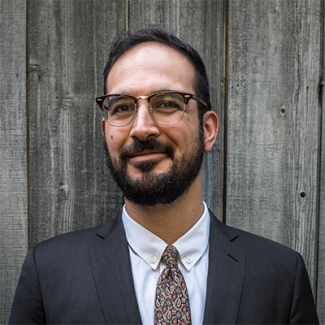
Alexander Bazazi, MD, PhD
Dr. Bazazi is a psychiatrist specializing in substance use disorders in the public system who led one of San Francisco’s first post-overdose outreach teams. He also serves as assistant director of the Research and Evaluation Unit in the Division of Substance Use and Addiction Medicine at Zuckerberg San Francisco General Hospital. As an epidemiologist, he conducts research on fentanyl overdose in San Francisco in collaboration with the Department of Public Health and clinical research on improving opioid use disorder treatment in the fentanyl era. He is passionate about harm reduction and health justice, and his work has been used in San Francisco, nationwide, and internationally to advance public health and clinical practice for people who use drugs.
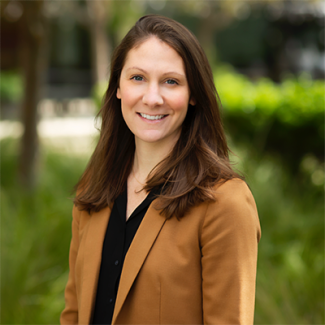
Kaitlin Casaletto, PhD
Dr. Casaletto is a neuropsychologist passionate about understanding resilience to brain aging and neurodegeneration. She obtained her PhD in Clinical Psychology from the UCSD/SDSU Joint Doctoral Program and her fellowship in clinical neuropsychology at the UCSF Memory and Aging Center, where she joined the faculty. She directs the UCSF Hillblom Brain Aging Center, is co-lead of the UCSF Alzheimer’s Disease Research Center Biomarker Core, co-directs the UCSF Memory and Aging Center Neuropsychology Training Program, and is a scientific advisor on the Ann S. Bowers Women’s Brain Health Initiative. Her research program aims to prevent cognitive decline by identifying the biological and behavioral drivers of cognitive resilience with age. Her work has a particular lens toward sex differences and translational study designs that leverage fluid and tissue biomarkers and digital health approaches to identify targets of cognitive resilience to aging.

Cindy Chai, MD
Dr. Chai is a neurologist and pain medicine specialist who is currently director of the UCSF Pain Medicine Fellowship Program. Dr. Chai received her bachelor's degrees from UC Berkeley with dual majors in art practice and molecular and cell biology. She received her medical degree from Dartmouth Geisel School of Medicine. After completing a neurology residency at Johns Hopkins Hospital and a pain medicine fellowship at UCSF, Dr. Chai established and directed the pain clinic at the Fresno VA Medical Center before returning to UCSF in 2017. Her clinical work entails the full spectrum of outpatient pain medicine, including interventional and non-interventional treatments. She is the director-at-large for the Association of Pain Program Directors and serves as a committee member for ASRA Pain Medicine. She has a special interest in medical education and is a UCSF teaching scholar.
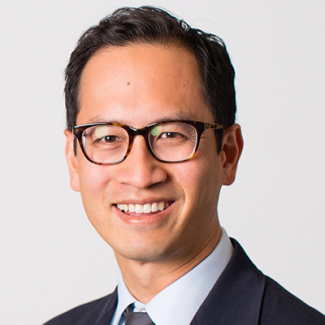
Edward F. Chang, MD
Dr. Chang’s clinical expertise is in surgical therapies for epilepsy, pain, and brain tumors. He specializes in advanced neurophysiologic brain mapping methods, including awake speech and motor mapping, to safely perform neurosurgical procedures in eloquent areas of the brain. His research focuses on the discovery of cortical mechanisms of high-order neurological function in humans. Dr. Chang’s laboratory has demonstrated the detailed functional organization of the human speech cortex and translated these discoveries into the development of a speech neuroprosthetic device to restore communication for people living with paralysis. Dr. Chang is a recipient of the 2015 Blavatnik National Laureate in Life Sciences, the Winn Prize of the Society of Neurological Surgeons, and was elected to the National Academy of Medicine and the National Academy of Sciences.
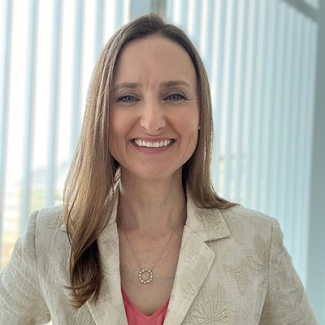
Claire Clelland, MD, PhD, MPhil
Dr. Clelland is a neurologist specializing in the care of patients with dementia and cognitive symptoms at the UCSF Memory and Aging Center. Her lab develops novel therapies for neurodegenerative diseases. Dr. Clelland’s research centers on creating novel CRISPR gene therapies for genetic forms of dementia and ALS, utilizing patient iPSCs to model disease, advanced sequencing technologies, and cutting-edge CRISPR technologies to develop first-in-class gene therapies for CNS diseases. She has developed human model systems to revolutionize how new biologics are discovered and validated. As part of this effort, she co-chairs the NIH Somatic Cell Genome Engineering Consortium Steering Committee. Dr. Clelland is the recipient of two national awards for neuroscience: the Alzheimer’s Association and NACC New Investigator Award and the American Neurological Association’s Grass Foundation Award in Neuroscience.

Tommaso Di Ianni, PhD
Dr. Di Ianni’s research focuses on ultrasound neuromodulation and functional neuroimaging. He has extensive experience designing cutting-edge ultrasound technologies and innovative imaging approaches. His lab is currently developing a miniaturized device for closed-loop ultrasound neuromodulation and combines translational neuroscientific methods to dissect its underlying mechanisms. As co-director of the UCSF Focused Ultrasound in Neuroscience Program, he helps bring together basic and clinical scientists to expedite the development and clinical translation of ultrasound treatments in neuropsychiatry. He earned a master’s degree in electronic engineering from the University of Bologna, a PhD in biomedical engineering from the Technical University of Denmark, and completed postdoctoral training at Stanford University.
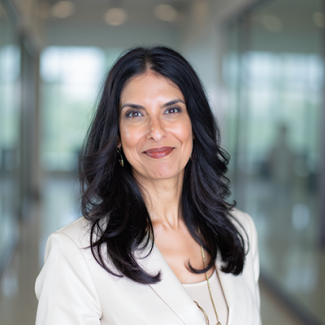
Dena B. Dubal, MD, PhD
Dr. Dubal is a physician-scientist who trained in neurology at UCSF. She leads a research program focused on longevity and brain resilience in aging and neurodegenerative diseases. Her team discovered that the longevity factor, klotho, enhances brain function, and they are now advancing this toward clinical trials. Her team also uncovered new roles for the X chromosome in aging and women’s health. Dr. Dubal’s work has been published in journals such as Nature, Nature Aging, and Science Advances and featured in the New York Times, WSJ, The Economist, and NPR. She has received multiple honors, including the NIA/AFAR Paul Beeson Award for Aging Research and the Grass Neuroscience Award. She serves in the leadership of JAMA Neurology, the Glenn Foundation for Medical Research, and UCSF’s Weill Institute for Neurosciences.
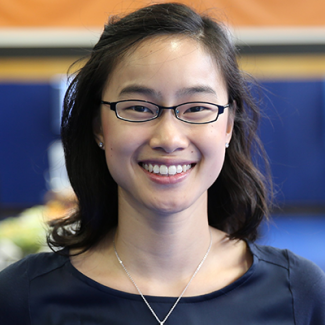
Joline Fan, MD, MS
Dr. Fan is a neurologist specializing in adult epilepsy. She is dedicated to helping patients understand their epilepsy, optimizing medical therapy, and facilitating the pre-surgical evaluation for individuals with drug-resistant epilepsy. Her research focuses on developing next-generation neurostimulation technologies for epilepsy and neuropsychiatric disorders and investigating the interplay between sleep and epilepsy using multimodal neuroimaging and electrophysiology. She leads the clinical translation of non-invasive, low-intensity focused ultrasound for drug-resistant epilepsy and efforts to optimize its therapeutic potential. Dr. Fan earned her bachelor’s degree in chemical engineering from Princeton University, her master’s in bioengineering from Stanford University, and her medical degree and neurology training from UCSF.

Karunesh Ganguly, MD, PhD
Dr. Ganguly is a neurologist who earned his MD/PhD from UC San Diego, followed by internal medicine and neurology residency at UCSF. During his training, he conducted research on Brain-Machine Interfaces at UC Berkeley. Dr. Ganguly is the director of the Neural Engineering and Plasticity Lab, where his research integrates neuroscience and neuroengineering to develop technologies that enhance motor recovery. His clinical expertise centers on neurological rehabilitation in patients with motor impairments. Dr. Ganguly is a recipient of several prestigious awards, including the Presidential Early Career Award for Scientists and Engineers (PECASE), the NIH New Innovator Award, and, most recently, the Outstanding Neurorehabilitation Scientist Award from the American Society of Neurorehabilitation.

Cathra Halabi, MD
Dr. Halabi is board-certified in neurology and vascular neurology. In the hospital, she cares for patients with neurovascular emergencies like stroke. In her outpatient practice, she established the UCSF Neurorecovery Clinic to help patients recover from brain injuries like stroke, concussion, and traumatic brain injury (TBI). She co-developed the UCSF Post-Acute TBI Program, focusing on critical early months after injury. As a clinician researcher, she aims to detail underrecognized neurological and other long-term consequences of brain injury to identify treatment opportunities. Dr. Halabi earned her bachelor’s degree in molecular, cell and developmental biology from UCLA with a minor in music history. She earned her medical degree from UCSF, where she also completed a residency in neurology, a clinical fellowship in vascular neurology, and an NIH StrokeNet research fellowship. She is an active member of the National Academies of Sciences, Engineering and Medicine Action Collaborative on TBI Care, and the NIH StrokeNet Recovery and Rehabilitation working group.
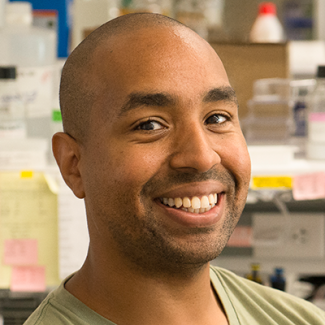
Corey Harwell, PhD
Dr. Harwell studies cellular and molecular programs that regulate neural cell fate and circuit assembly in the developing brain. His lab is focused on understanding how the lineage of neural cell types influences their mature function. His lab follows specific subgroups of neural progenitors through developmental time to understand the genetic and epigenetic programs that determine their ultimate fate. This work requires a multidisciplinary approach utilizing molecular genetics, molecular biology, and neural circuit mapping techniques to analyze the function of temporally defined subgroups of neurons in the developing brain. Together, these diverse approaches provide a comprehensive picture of the molecular specification of distinct neuronal cell types and their functional relevance within brain circuits.
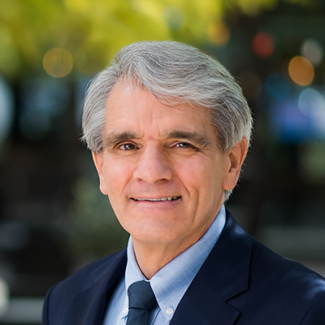
Stephen L. Hauser, MD
Dr. Hauser is a neurologist, internist, and immunologist specializing in multiple sclerosis (MS). He is an international leader in research on the genetic basis, immune mechanisms, and treatment of MS. Dr. Hauser’s research has advanced our understanding of the genetic basis, immune mechanisms, and treatment of MS. His work led to the development of B-cell therapies for MS patients, representing a powerful new approach for treating all forms of the disease; the first therapy of proven value for progressive MS. He is a member of the National Academy of Medicine and a fellow of the American Academy of Arts and Sciences and the American Academy of Physicians. In 2025, he won the Breakthrough Prize in Life Sciences for his work in identifying the cause of MS.
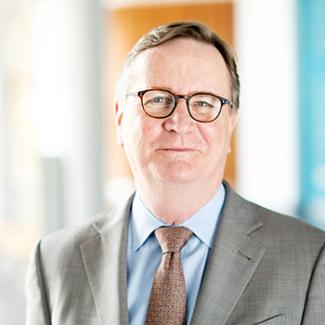
Sam Hawgood, MBBS
Sam Hawgood, MBBS, became UCSF’s 10th chancellor in July 2014. He previously served as dean of the UCSF School of Medicine and vice chancellor for medical affairs. In addition to his four-decade distinguished career at UCSF, he is renowned internationally for neonatology research. A native of Australia, Chancellor Hawgood earned his medical degree with first-class honors from the University of Queensland in Brisbane. He trained in pediatrics as a resident and specialized in neonatology as a fellow.
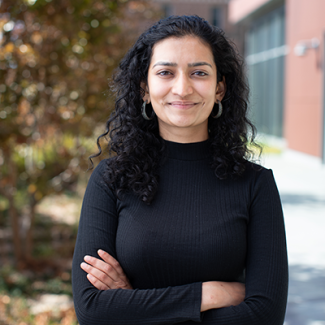
Shailee Jain, PhD
Dr. Jain is a computational neuroscientist who uses machine learning to build models of the human brain. She aims to understand biological and artificial intelligence in tandem and the root of remarkable human capabilities like language. She is currently working as a postdoctoral researcher in the lab of Edward Chang, MD, in the Department of Neurosurgery. Dr. Jain completed her PhD in computer science at the University of Texas at Austin in 2023. Her PhD research was awarded the Best Dissertation Award by the Society for the Neurobiology of Language and the Cognitive Science Society. Her collaborative work has also been widely featured in the press, including Al Jazeera, BBC, Scientific American, and NBC News. She has organized multiple international symposiums on Neuro-AI, taught summer schools, and, in 2021, was named an MIT EECS Rising Star.
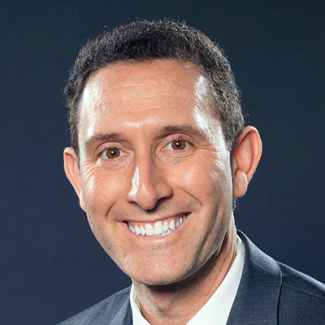
S. Andrew Josephson, MD
Dr. S. Andrew Josephson specializes in neurovascular and other neurologic disorders, caring for general neurology and stroke patients in the hospital as well as in clinic. He is the founder of UCSF's Neurohospitalist Program and specializes in difficult to diagnose inpatient neurologic conditions. He serves as Chair of the Department of Neurology and is the Carmen Castro Franceschi and Gladyne K. Mitchell Neurohospitalist Distinguished Professor. After graduating from Stanford University, Dr. Josephson earned his medical degree at Washington University in Saint Louis. He completed an internship in internal medicine and a residency in neurology at UCSF, where he was chief resident. He also completed fellowships in neurovascular neurology (stroke) and behavioral neurology at UCSF and is board certified in both vascular neurology and neurocritical care. Dr. Josephson is known nationally for his pioneering work launching the neurohospitalist model of care and his leadership of its society. His research interests include improving models of inpatient neurologic care delivery, quality and safety in hospitalized patients, neurologic education, delirium, and the contribution of stroke to dementia. He serves as the Editor-In-Chief of JAMA Neurology, a leading journal in the field. Dr. Josephson has won numerous teaching awards from medical students and residents at UCSF including being selected to present the keynote address for the School of Medicine Commencement; the Henry J. Kaiser Award for Excellence in Teaching; the Academic Senate Distinction in Teaching Award, and the Robert Layzer Golden Toe Award for resident teaching.

Jon Kleen, MD, PhD
Dr. Kleen is a physician-scientist who earned his PhD in neuroscience from Dartmouth College and his MD from Dartmouth Medical School. The remainder of his training was at UCSF, including adult neurology residency, an epilepsy fellowship, and postdoctoral training in human neurophysiology. Dr. Kleen serves as an attending physician at the UCSF Comprehensive Epilepsy Center, specializing in patients with severe epilepsy. He has a computer science and engineering background, and his lab studies direct patient brain recordings by applying advanced brainwave analysis and AI/machine learning techniques. His goals are to use advances in computer technology to develop strategies to stop seizures and improve memory and cognitive function in people living with epilepsy.
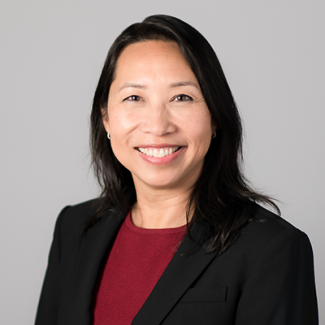
Nerissa Ko, MD, MAS
Dr. Ko completed her neurology residency and fellowship training at UCSF and currently serves as the associate director of the UCSF Neurovascular Service, the medical director of the Adult Neurointensive Care Units, and the director of the Neurocritical Care Fellowship Program. With her clinical training and experience as a neurointensivist and vascular neurologist, Dr. Ko cares for critically ill neurology and neurosurgery patients and specializes in the care of patients with strokes, intracerebral hemorrhages, and complex vascular malformations. With her background in clinical research and genetic epidemiology methods, Dr. Ko has had a successful longitudinal clinical research program in subarachnoid hemorrhage and brain aneurysms for nearly two decades. She has served on numerous clinical trials and is part of the UCSF Brain Arteriovenous Malformation study and co-director of the UCSF Center of Excellence for Cerebral Cavernous Malformations.

Nevan Krogan, PhD
Dr. Krogan led the work to create the SARS-CoV-2 interactome and assembled the QBI Coronavirus Research Group (QCRG), which includes hundreds of scientists from around the world. His research focuses on developing and using unbiased, quantitative systems approaches to study a wide variety of diseases with the ultimate goal of developing new therapeutics. Nevan serves as director of The HARC Center, an NIH-funded collaborative group focusing on the structural characterization of HIV-human protein complexes. Dr Krogan is also the co-Director of four Cell Mapping initiatives: the Cancer Cell Mapping Initiative (CCMI), the Host Pathogen Map Initiative (HPMI), the Psychiatric Cell Map Initiative (PCMI), and the (QCRG AViDD) NIH grant, which is the largest research grant awarded in University of California history. These initiatives map the gene and protein networks in healthy and diseased cells, which are used to understand disease better and provide novel therapies to fight it. He is a Searle Scholar, a Keck Distinguished Scholar, a recipient of the Roddenberry Prize for Biomedical Research, and was recently elected to EMBO (European Molecular Biology Organization) membership. In recognition of his collaborative work bringing scientists across the globe to work together on SARS-CoV-2, Dr. Krogan was awarded the French Legion of Honor in 2021, the Louis Pasteur Medal in 2022, and the Research America Discovery Innovation Health Prize in 2023. In 2024, Dr. Krogan was named to the Cell Press 50 Scientists that Inspire, and in 2025, he was awarded an Einstein Foundation Visiting Fellowship.

Andrew Krystal, MD
Dr. Krystal has more than 30 years of experience in patient care and research. He is recognized as a world leader for his work in sleep disorders, particularly insomnia, and mood disorders. In the Dolby Family Center for Mood Disorders, scientists conduct research on deep brain stimulation for severe, treatment-resistant depression, while the UCSF Clinical and Translational Sleep Research Laboratory develops new treatments for sleep disorders and investigates the links between sleep and medical and psychiatric conditions. As director of the UCSF Interventional Psychiatry Program, Dr. Krystal explores deep brain stimulation, transcranial magnetic stimulation, and the use of the drug esketamine in clinical programs.

Daniel Lim, MD, PhD
For over two decades, Dr. Lim's research has focused on neural stem cells – a cell type that can generate large numbers of new neurons for human therapy. His laboratory has made seminal discoveries along the broad continuum of stem cell research, from the molecular instructions that guide the production of neurons to the development of neurosurgical devices for cell transplantation to the human brain. His broader vision is to create novel treatments combining neuromodulation – such as deep brain stimulation – with cell and gene therapies to restore function to the injured, aging, or diseased brain. His most recent discoveries about the 3D structure of the genome are building a new paradigm for understanding and treating dementia.

Simon Little, MBBS, PhD
Dr. Little is a neurologist specializing in movement disorders, including Parkinson's disease, tremor, and dystonia. He is particularly interested in using deep brain stimulation (surgically implanted electrodes to regulate areas of the brain that trigger abnormal activity) to treat symptoms such as muscle stiffness, slowness, and tremors when they haven't responded to other therapies. Similarly, his research focuses on further developing deep brain stimulation therapies to diagnose and treat neurological conditions. Dr. Little aims to better understand the circuits and signals driving these disabling symptoms, discover fundamental brain mechanisms, and advance new personalized, responsive neuromodulation therapies.

Bruce Miller, MD
As a behavioral neurologist whose work emphasizes brain-behavior relationships, Dr. Miller has reported on the emergence of artistic ability, personality, cognition, and emotion with the onset of neurodegenerative disease. Additionally, he helps lead the Tau Consortium, the Bluefield Project to Cure Frontotemporal Dementia, the UCSF Parkinson’s Spectrum Disorders Center, and the Global Brain Health Institute. He has been awarded the Potamkin Award from the American Academy of Neurology and elected to the National Academy of Medicine.
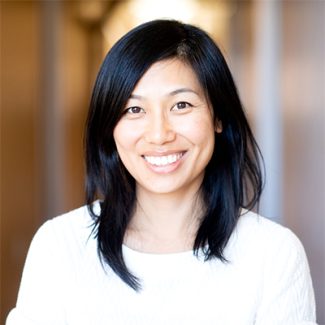
Fumi Mitsuishi, MD, MS
Dr. Mitsuishi has committed her career to public service in support of mind, body, and social wellness. Born in Japan, raised in France, and educated in the United States, she appreciates living at the intersection of cultures and the experience of “otherness.” She views medicine as a window into our complex humanity and specializes in the science of systems change. She was the director of Citywide Case Management (Citywide), leading 200 interdisciplinary staff annually serving 2000 patients with serious mental illness. Citywide provides an alternative to institutionalization through wrap-around behavioral and social services. Dr. Mitsuishi studied neuroscience and history of art at UC Berkeley, earned an MS in health sciences at UC Berkeley, and her medical degree at UCSF. She completed her residency training in psychiatry and a fellowship in public psychiatry at UCSF. She uses her understanding of interpersonal and group dynamics to make systems change possible and elegant. She believes that unconditional positive regard for others and data-driven interventions can minimize stigma, social conditions such as homelessness, and suffering.
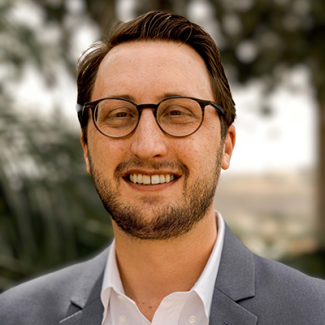
Julian Motzkin, MD, PhD
Dr. Motzkin is a neurologist and interventional pain medicine specialist. He earned his MD/PhD from the University of Wisconsin–Madison Medical Scientist Training Program, where his graduate research examined how frontal lobe damage alters mood and pain circuits. He completed neurology residency and pain medicine fellowship at UCSF, followed by an NINDS R25 research fellowship with Dr. Allan Basbaum, before joining the UCSF faculty in neurology and anesthesia. His research uses functional MRI, transcranial magnetic stimulation, and computational neuroscience methods to investigate the neural circuit mechanisms underlying pain and relief, to develop noninvasive brain stimulation and precision medicine tools for personalized chronic pain diagnosis and treatment.
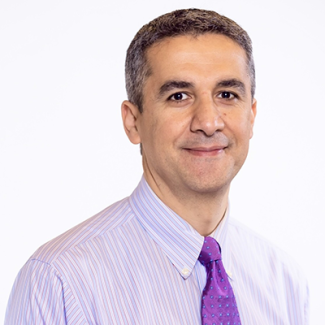
Khaled Moussawi, MD, PhD
Dr. Moussawi directs the Translational Neuropsychiatry Through Neuromodulation (TN²) laboratory, which focuses on understanding and treating substance use disorders through advanced neuromodulation techniques. Dr. Moussawi earned his MD/PhD from the Medical University of South Carolina. He subsequently completed his neurology residency at the Harvard Partners Neurology Program and a neuropsychiatry fellowship at a joint program between Johns Hopkins and the NIH. Prior to UCSF, Dr. Moussawi joined the Department of Psychiatry at the University of Pittsburgh, where he led preclinical and clinical research studies aimed at understanding relapse vulnerability and exploring neuromodulation-based treatments for substance use disorders. At UCSF, the TN² lab combines neuroscientific discovery with innovative neuromodulation strategies such as Low-Intensity Focused Ultrasound, Deep Brain Stimulation, and brain mapping with stereoencephalography (sEEG) to investigate and treat drug and alcohol addiction.

Alexandra B. Nelson, MD, PhD
Dr. Nelson cares for movement disorders patients in the clinic and leads a research lab investigating the mechanisms of movement disorders, including Parkinson's Disease and dystonia. She and her research team use techniques like electrophysiology and optogenetics to identify the abnormal patterns of brain activity that cause movement disorders and inform new therapies.
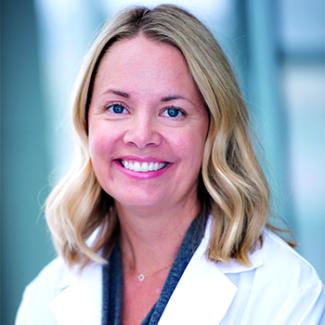
Jill Ostrem, MD
Dr. Ostrem is an internationally recognized neurologist specializing in Parkinson’s Disease, dystonia, and essential tremor. She is a leader in advancing the diagnosis and treatment of movement disorders, with a research focus on experimental therapeutics and innovations in neuromodulation. Her work has significantly shaped the field of deep brain stimulation, a surgical therapy that uses implanted electrodes to regulate abnormal brain activity. Since joining UCSF in 2003, Dr. Ostrem has helped build one of the world’s leading centers for clinical care, research, and education in movement disorders. Under her leadership, the center is recognized internationally for its excellence in medical and surgical treatments, cutting-edge research, and commitment to training the next generation of specialists.
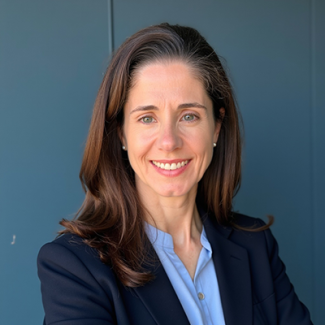
Marta San Luciano Palenzuela, MD, PhD
Dr. San Luciano Palenzuela is a neurologist specializing in diagnosing and managing movement disorders, including Parkinson's Disease, dystonia, and tremor. Her clinical and research interests include patients with genetic risk factors for movement disorders, the development of biomarkers, and the optimization of medical and surgical therapies, particularly deep brain stimulation. With a background in clinical research methodology and extensive training in neurology and movement disorders, she is committed to advancing the understanding of movement disorders through epidemiological studies, outcomes research, and the exploration of novel therapeutic strategies. She earned her medical degree from the University of Navarre in Spain, completed her neurology residency, and served as chief resident at Boston University. She then pursued fellowship training in movement disorders at Beth Israel Medical Center in New York, obtained a Master’s in Clinical Research Methods at Albert Einstein College of Medicine, and earned a PhD in Epidemiology and Translational Science at UCSF.

Luis Savastano, MD, PhD
Dr. Savastano is a surgeon-scientist and inventor dedicated to advancing cerebrovascular neurosurgery through translational research and novel technologies. A hybrid vascular neurosurgeon, he specializes in both microsurgical and endovascular treatment of ischemic and hemorrhagic stroke. He leads the Translational Neurotechnologies Lab, where his team develops and validates next-generation neuroendovascular and minimally invasive surgical solutions. Dr. Savastano is the lead inventor of multiple breakthrough technologies, several of which have gained FDA approval or are undergoing clinical evaluation. His work bridges clinical practice, engineering, and entrepreneurship with the goal of addressing unmet clinical needs and expanding access to life-saving therapies for patients suffering from stroke and other cerebrovascular disorders.

Prasad Shirvalkar, MD, PhD
Dr. Shirvalkar is a neurologist and pain physician who treats diverse chronic pain syndromes from head to toe. He also leads the Pain Neuromodulation Laboratory at UCSF. He earned his MD/PhD at the Icahn School of Medicine at Mount Sinai. He completed a neurology residency at Weill Cornell and Memorial Sloan Kettering, where he served as chief resident. He completed a pain medicine fellowship and postdoctoral training at UCSF. His lab aims to develop novel brain and spine stimulation technology to improve pain and quality of life. They recently discovered the first direct brain biomarkers to track chronic pain severity, which was featured in media outlets worldwide. He is a faculty member of the UCSF Neurosciences and UC Berkeley Bioengineering PhD programs. His work is supported by the NIH, UCSF Weill Institute for Neurosciences, The Marcus Foundation, and other private organizations.
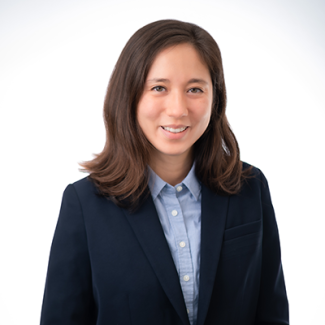
Clara Starkweather, MD, PhD
Dr. Starkweather is a neurosurgery resident at UCSF. She earned her MD/PhD at Harvard, where her doctoral research focused on the biological basis of reinforcement learning. Her work centers on defining the neural computations of the human prefrontal cortex during decision-making. She seeks to identify how these circuits break down in psychiatric illness and to restore their function through anatomically precise neuromodulation strategies such as deep brain stimulation. Her research advances fundamental understanding of human decision-making circuits and provides an anatomical blueprint for targeted neuromodulation. Dr. Starkweather is motivated by the significant unmet need in medically refractory psychiatric disorders and is committed to a career pushing the boundaries of functional neurosurgery toward psychiatric indications.
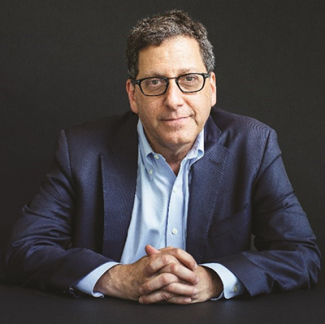
Matthew W. State, MD, PhD
Dr. State is an internationally known child psychiatrist and human geneticist. Over the past 20 years, his laboratory has contributed to major advances in the genetics and biology of developmental neuropsychiatric disorders, including autism spectrum disorder and Tourette disorder. Along with a handful of other laboratories, Dr. State’s research group has been a leader in demonstrating the central role of rare, spontaneous mutations to ASD and TD. In collaboration with Nenad Sestan, MD, PhD, at Yale, the State lab has also pioneered the use of systems biological approaches to identify key aspects of the cellular and developmental characteristics of ASD pathology, identifying the role of human mid-fetal cortical excitatory neurons in the etiology of the syndrome. Under his leadership, the UCSF Department of Psychiatry and Behavioral Sciences has championed collaboration across the neurosciences and expanded research, clinical services, and advocacy, including overseeing the construction of the Nancy Friend Pritzker Psychiatry Building and the Joan and Sanford I. Weill Neurosciences Building. He has received numerous awards, including a Distinguished Citizen Award from the Commonwealth Club of San Francisco, the Ruane Prize from the Brain and Behavior Research Foundation, and the Rhoda and Bernard Sarnat International Prize in Mental Health from the US National Academy of Medicine. He was elected a National Academy of Medicine (NAM) member in 2013.

Doris Wang, MD, PhD
Dr. Wang is a board-certified neurosurgeon specializing in the treatment of movement disorders. A physician-scientist with a PhD in neuroscience, Dr. Wang leads a translational research program focused on understanding and restoring motor network function in Parkinson’s Disease. Her work integrates chronic cortical and basal ganglia recordings with wearable sensors to study human gait and motor control in naturalistic settings. She has pioneered closed-loop neuromodulation approaches, including gait-phase–synchronized adaptive deep brain stimulation. Dr. Wang is also co-director of UCSF’s focused ultrasound program, expanding its applications in both motor and neuropsychiatric disorders. Her research has been supported by the NIH, the Michael J. Fox Foundation, and the Burroughs Wellcome Fund. She serves on multiple national neurosurgical committees and editorial boards and was recently named a UCSF Chen Scholar for her contributions to neuroscience.
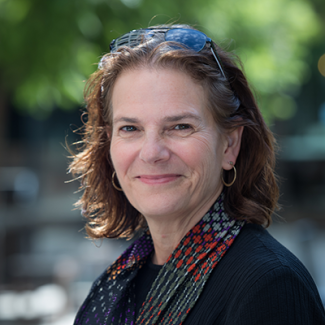
Kristine Yaffe, MD
Dr. Yaffe is an internationally recognized expert in the epidemiology of dementia and one of the foremost leaders in identifying modifiable risk factors for brain health and dementia. Dr. Yaffe and her colleagues were the first to determine that potentially 30 to 40 percent of dementia risk is preventable. Her work has formed the cornerstone for dementia prevention trials worldwide. In recognition of these groundbreaking accomplishments, Dr. Yaffe has received the American Academy of Neurology’s Potamkin Prize for Alzheimer’s Research, the NIH Robert S. Gordon, Jr. Award in Epidemiology, and the Department of Veterans Affairs John B. Barnwell Award for Clinical Research. Dr. Yaffe was elected to the National Academy of Medicine in 2019.